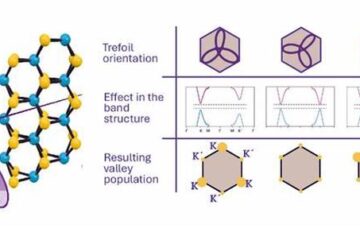Researchers are working on an ecological, effective, non-toxic and low-cost detergent

In parallel with this increase, concern is growing too, as far as these products must be ecological, non-toxic, cheap and, in addition, effective. A research team of the University of Granada is working on the design of biodegradable detergents respectful with the environment, which adapt to the needs of the new times and harmless to humans; their work has given the first results through a doctoral thesis that, under the title “Biodegradation and toxicity of commercial tensioactives”, has been developed by Manuela Lechuga Villena, of the department of Chemical Engineering of the UGR.
This first study has focused on the analysis of four types of tensioactives which are usually present in the formulations of commercial detergents: lineal alkylbenzene sulphonate, which can be mainly found in manual dish soap and textile detergents and which is synthetised from non-renewable oil raw materials; nonylphenols polyethoxilates commonly used in industrial detergents for hard surfaces; fatty ethoxilated alcohols, appeared as an attempt for a more ecological answer to nonylphenols polyethoxilates and alkylpolyglucosids from oils and sugars, completely renewable raw materials which also have excellent cleansing properties and can be an excellent alternative to alkylbenzene.
An ecological and cheap alternative
After the having analysed these four wash compounds reproducing rivers' and seas' conditions in the laboratory to determine the toxicity of these products on sea bacteria, the researcher has concluded that fatty alcohols ethoxilated and alkylpolyglucosids show an excellent toxicological and biodegradation behaviour, which turns them into the best ecological alternative. In addition, according to Lechuga Villena, a previous work carried out by the research groups of the University of Granada [http://www.ugr.es] Tensioactives, Enzymes and Emulsions and Interfaces and Biochemical Technology confirms that the combination of these tensioactives leads to commercial products with an outstanding cleansing capacity.
The importance of this work of this work resides in the wide variety of implementations of these compounds –domestic uses, personal care, industrial and textile cleaning, hotel business, the restaurant and feeding industry– and, therefore, in their multiple effects in the long and short term not only on the environment, but also on human organism (dermatological, neurological, cardiologic actions, etc.)
One of the main objectives of this project is to prevent that the great proliferation of these chemical products ends up affecting humans and their environment. Therefore, these first results are “an indispensable step to formulate a detergent which is able to work with less aggressive means and with a high wash effectiveness”, explains the researcher, who adds that “this is at present one of the great challenges in the field of the companies that trade in this kind of detergents, which would be welcome both by consumers and by the producers who manufacture the specific and necessary machinery in the wash process”.
Media Contact
All latest news from the category: Ecology, The Environment and Conservation
This complex theme deals primarily with interactions between organisms and the environmental factors that impact them, but to a greater extent between individual inanimate environmental factors.
innovations-report offers informative reports and articles on topics such as climate protection, landscape conservation, ecological systems, wildlife and nature parks and ecosystem efficiency and balance.
Newest articles

Simplified diagnosis of rare eye diseases
Uveitis experts provide an overview of an underestimated imaging technique. Uveitis is a rare inflammatory eye disease. Posterior and panuveitis in particular are associated with a poor prognosis and a…

Targeted use of enfortumab vedotin for the treatment of advanced urothelial carcinoma
New study identifies NECTIN4 amplification as a promising biomarker – Under the leadership of PD Dr. Niklas Klümper, Assistant Physician at the Department of Urology at the University Hospital Bonn…

A novel universal light-based technique
…to control valley polarization in bulk materials. An international team of researchers reports in Nature a new method that achieves valley polarization in centrosymmetric bulk materials in a non-material-specific way…





















